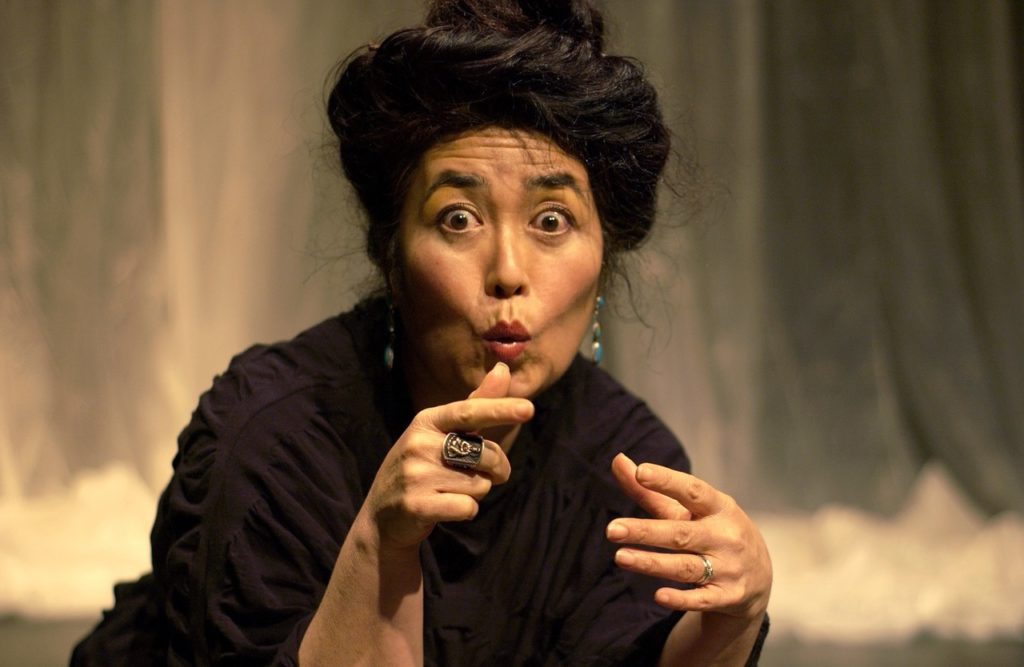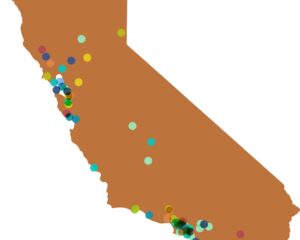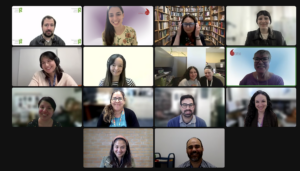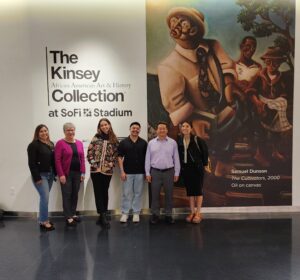Artist, storyteller, and California Humanities Board Member Brenda Wong Aoki, along with the Center for Asian American Media, recently were awarded a Hewlett50 grant from the William and Flora Hewlett Foundation, along with nine other recipients across the Bay Area. Below, Brenda reflects on what the award will mean to her. She also discusses how she hopes the project, “J-town, Chinatown, Our Town” (working title), a major multi-media and multi-disciplinary theater work based on true stories about people and places from her life and that of her Chinese- and Japanese-American family’s 121-year history in San Francisco will impact the community, and the way that storytelling projects like hers reflect social and cultural life.
For more about the grant award and project, visit the William and Flora Hewlett Foundation’s website.
What the work means to Brenda and to her career
Brenda: This work is allowing me to look deeply into my Chinese side, which I never could do before because I didn’t have permission from my elders; now that they are older—and in fact, are dying—they want their story told.
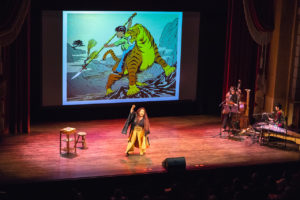
As a playwright, this is the first time I’m pulling together all parts of my bloodlines into one story—my story—which, as the piece is toured, will help spread understanding of the new multiracial America. As a storyteller who has performed all over this nation, I’ve learned it is the painfully personal that becomes the most universal. That is why I will be telling personal stories.
I have bloodlines going back over 100 years in Chinatown and Japantown; only I could tell this story. My husband, composer Mark Izu, and I will retire soon, so this project is a transmission of experiential wisdom and love—for family, for homeland drawn from decades of living and working in the City. At its core, this is a love letter to San Francisco.
How the project will impact the community
Brenda: During these times it is easy to believe our lot in life occurred because we were not smart enough, rich enough, or brave enough. Racism engenders low self-esteem. So it is particularly necessary when our communities are stressed to tell our hero stories. To remind ourselves of who we are and how we’ve survived and thrived before. Self-hatred is a consequence of racism. Hearing stories from our elders about living in the Japanese Prison Camps allows younger generations to understand how important it is to take a stand against racist policies today. Older activists from I-hotel in Chinatown can share strategy with younger activists around displacement. If you know your history, you can change your future. This is why we will be doing three years of story circles as we develop this work.
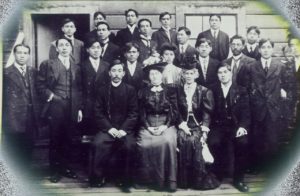
The seismic shifts taking place in Japantown and Chinatown compel us to not only digitally capture people and places before they are gone but to support our communities while they are under attack, even as we make a new work of art. We will preserve our history by researching and gathering oral histories from our elders; as we develop the work we will perpetuate our history and culture by doing Story Circles so people in the community can share their own stories, finally we will slowly transform our fellow humans by premiering a new work of art representing the people whose story we are telling.
On the role of art in responding to and reflecting the concerns of society
Brenda: This play is about the first Chinatown and Japantown in the U.S. The project is urgent because both Chinatown and J-town are under threat and the elders who remember the history are dying.
I am Japanese, Chinese, Spanish, Scottish and one of the first playwrights in the country to write about the multiracial experience. As the changing demographics of our country grow increasingly multiracial, I am writing an American story.
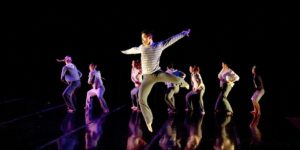
Inspired by our son Kai Kane, and by our family history and life experience in San Francisco, “J-town, Chinatown: Our Town” will be a multidisciplinary, multimedia evening-length work for storyteller, dancers and Asian jazz ensemble, with elements of neo-benshi (live alternate voice-overs for silent movies). Mark’s score will be performed on contemporary Western and traditional Chinese and Japanese instruments.
This piece is about identity and homeland in an increasingly multiracial America, especially in cities where historic cultural districts like Chinatown and J-town are being dismantled, or no one from the culture lives there anymore. Where do people who are uprooted from their culture fit into identity politics? Where do mixed race people fit in? Ultimately, the play is about belonging in a complex, interconnected, chaotic world.
For more about the grant award and project, visit the William and Flora Hewlett Foundation’s website.

